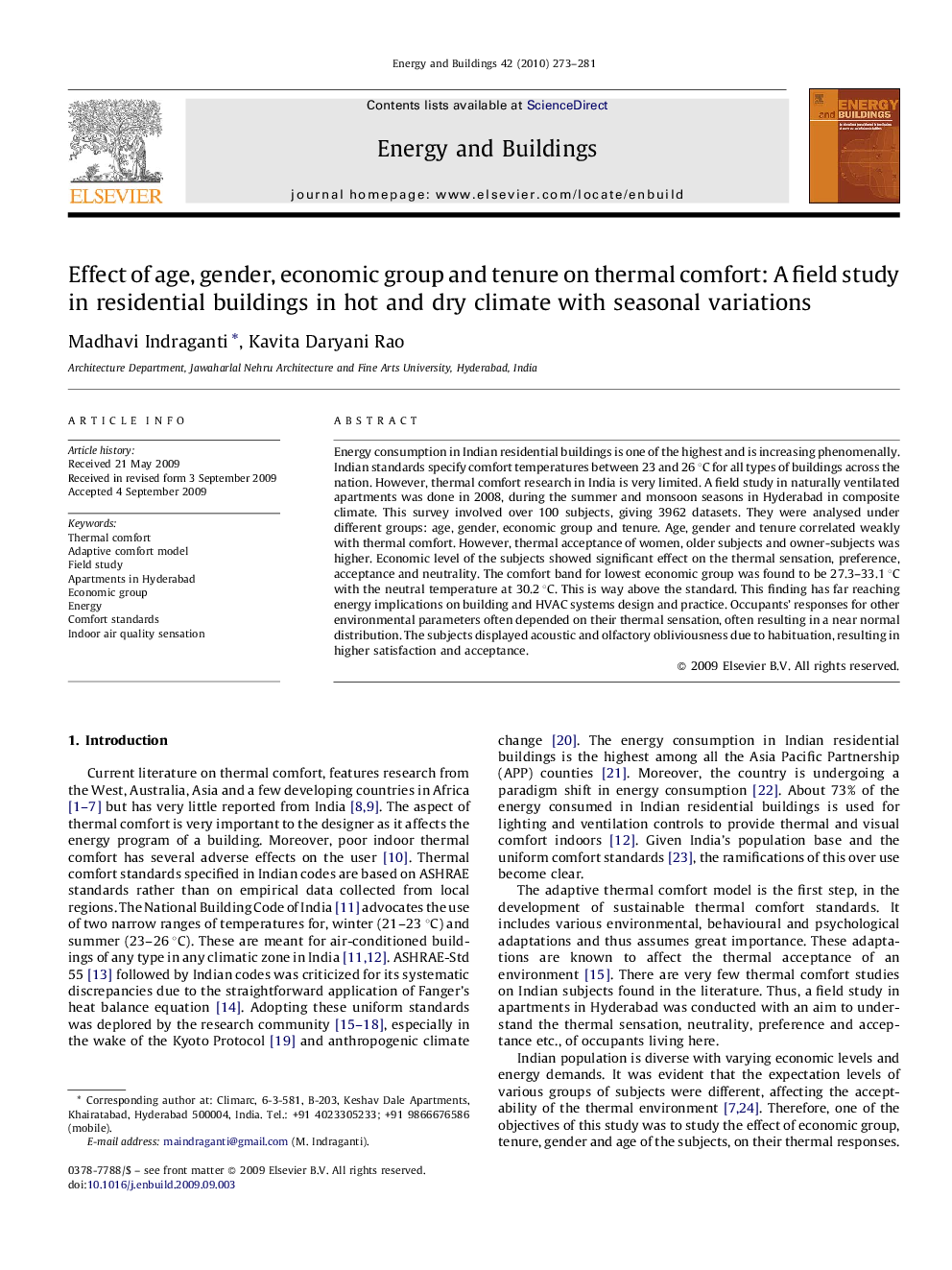| کد مقاله | کد نشریه | سال انتشار | مقاله انگلیسی | نسخه تمام متن |
|---|---|---|---|---|
| 265103 | 504131 | 2010 | 9 صفحه PDF | دانلود رایگان |

Energy consumption in Indian residential buildings is one of the highest and is increasing phenomenally. Indian standards specify comfort temperatures between 23 and 26 °C for all types of buildings across the nation. However, thermal comfort research in India is very limited. A field study in naturally ventilated apartments was done in 2008, during the summer and monsoon seasons in Hyderabad in composite climate. This survey involved over 100 subjects, giving 3962 datasets. They were analysed under different groups: age, gender, economic group and tenure. Age, gender and tenure correlated weakly with thermal comfort. However, thermal acceptance of women, older subjects and owner-subjects was higher. Economic level of the subjects showed significant effect on the thermal sensation, preference, acceptance and neutrality. The comfort band for lowest economic group was found to be 27.3–33.1 °C with the neutral temperature at 30.2 °C. This is way above the standard. This finding has far reaching energy implications on building and HVAC systems design and practice. Occupants’ responses for other environmental parameters often depended on their thermal sensation, often resulting in a near normal distribution. The subjects displayed acoustic and olfactory obliviousness due to habituation, resulting in higher satisfaction and acceptance.
Journal: Energy and Buildings - Volume 42, Issue 3, March 2010, Pages 273–281